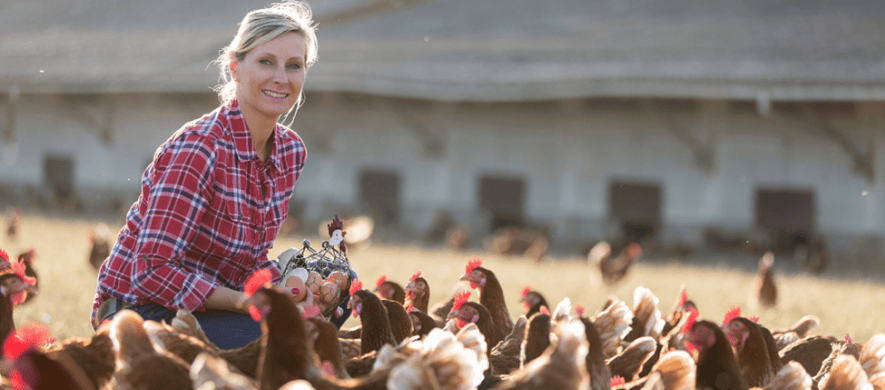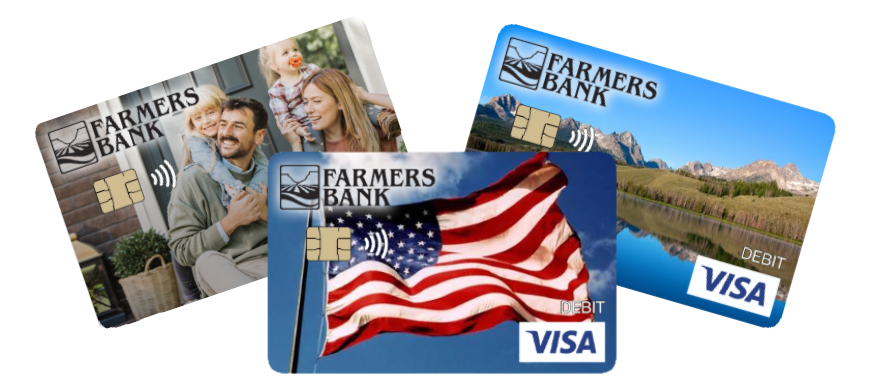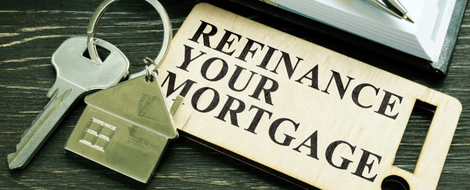


Small Business Loans & Financing in Idaho

Mobile and Online Banking Services in Idaho Customers
Additional Articles:
January:

Home Equity Loans vs Home Mortgages: What’s Best for You?

How to Leverage SBA Loans for Business Growth

Empowering Innovations with Business Loans

Overcoming Financial Challenges with Ready Reserve
.png)
Personalizing Your Banking Experience with Farmer’s Bank’s MyCardCreation®
%20(16).png)
Unlocking Opportunities: The Power of Commercial Real Estate Loans
%20(15).png)
Navigating Auto Loans with Farmers Bank: A Local Approach to Vehicle Financing
When it comes to buying a car, your financing experience should feel just as smooth as the open road ahead. That’s why more Idaho drivers turn to Farmers Bank for auto loans that are grounded in trust, flexibility, and local service. Whether you're shopping for your first vehicle or upgrading to something more reliable, partnering with a community bank can make all the difference.
Read Post
Step-by-Step Guide to Applying for a Home Loan with Farmers Bank

The Benefits of Refinancing Your Mortgage with Farmers Bank

Advancing Agriculture: Loans for New Farmers
Starting your own farm is a bold and rewarding move, but it comes with a unique set of financial challenges. Whether you're purchasing your first acreage, investing in new equipment, or simply managing seasonal cash flow, having the right financial partner makes all the difference. That’s why Farmers Bank is proud to support Idaho’s agricultural community with a full suite of lending options designed specifically for new and growing farm operations.

Fuel Business Expansion with Flexible Commercial Loans
As your business reaches new milestones, you may face opportunities that require significant capital, whether it’s opening a second location, purchasing high-value equipment, or scaling your operations to meet increased demand. That’s where commercial loans from Farmers Bank come in. These powerful financial tools are designed to help businesses like yours fuel long-term growth, improve efficiencies, and take bold steps forward.

Financing Personal Dreams: Options with Personal Loans
Life is full of big moments, and sometimes those moments come with big price tags. Whether you’re renovating your home, paying for education, or finally making that dream purchase, personal loans can be a smart and flexible way to make it happen. At Farmers Bank, we offer customized solutions to help you finance life’s major expenses with confidence.

Navigating SBA Loans: A Pathway to Business Success
For small business owners looking to grow, access to funding can often be the biggest hurdle. That’s where Small Business Administration (SBA) loans come in. Designed to make capital more accessible, SBA loans offer a powerful pathway to business success. At Farmers Bank, we’re proud to partner with local entrepreneurs by providing the support, tools, and financing they need to thrive.
Additional Articles:
December
- How to Leverage SBA Loans for Business Growth
- Home Equity Loans vs Home Mortgages: What’s Best for You?
November
October
August
July
June
- Tailoring Your Home Purchase: Mortgage Options at Farmers Bank(Opens in a new Window)
- Bridging Financial Gaps with Farmers Bank Ready Reserve (Opens in a new Window)
- Fueling Farm Operations: Comprehensive Agricultural Loans(Opens in a new Window)
May
April
- Unlocking Homeownership: Navigating Home Mortgage Loans with Farmers Bank(Opens in a new Window)
- Personalize Your Banking Experience with MyCardCreation®(Opens in a new Window)
March
January
Mobile Banking Tips: How to Bank on the Go!
Securing Your Dreams: Home Loans and Mortgages in the Magic and Treasure Valley
Business Bill Pay Solutions - Making Expense Management Easy
Making the Most of Personal Check Cards and uChoose Rewards
A Tradition You Can Count On: The Philosophy Behind Our Exceptional Customer Service
Exploring Personal Banking Options at Farmers Bank Idaho
Online Banking Services in Idaho: A New Era of Convenience
Agricultural Loans in Idaho: The Farmer's Guide to Success
Trusted Magic Valley Bank: Farmers Bank is your Financial Partner
Find the Best Personal Checking Accounts for your Needs
Your Guide to Navigating Loans in Twin Falls
Additional Articles:
December
November
October
- Online Banking Services in Idaho: A New Era of Convenience
- Agricultural Loans in Idaho: The Farmer's Guide to Success
March
2023 Blogs
December
November
- Empowering Farmers: One Agriculture Loan at a Time
- How to Choose the Best Home Equity Loan for Your Needs
- Understanding Idaho Mortgage Rates: Farmers Bank Offers Competitive Options
October
September
- Take Advantage of the Benefits of an ITM Near Me
- The Benefits of ACH for Business Owners and Customers
